In early March 2025, Hungary's Prime Minister Viktor Orban announced a nationwide consultative public vote on Ukraine’s EU membership, with Hungarian citizens able to submit their opinions until June 20. Peter Magyar also sought feedback from his supporters on the issue, which coincided with an uptick in Ukrainian propaganda activity in Hungary.
The opposing positions in this democratic debate have formed clearly defined camps. PM Orban stated that if it were in Hungary’s interest, citizens would be in support of Ukraine’s accession; however, as things stand, the country would lose out economically. In contrast, Peter Magyar, leader of the Tisza Party (a member of the European People’s Party (EPP) group in the European Parliament), is backing Ukraine’s membership.
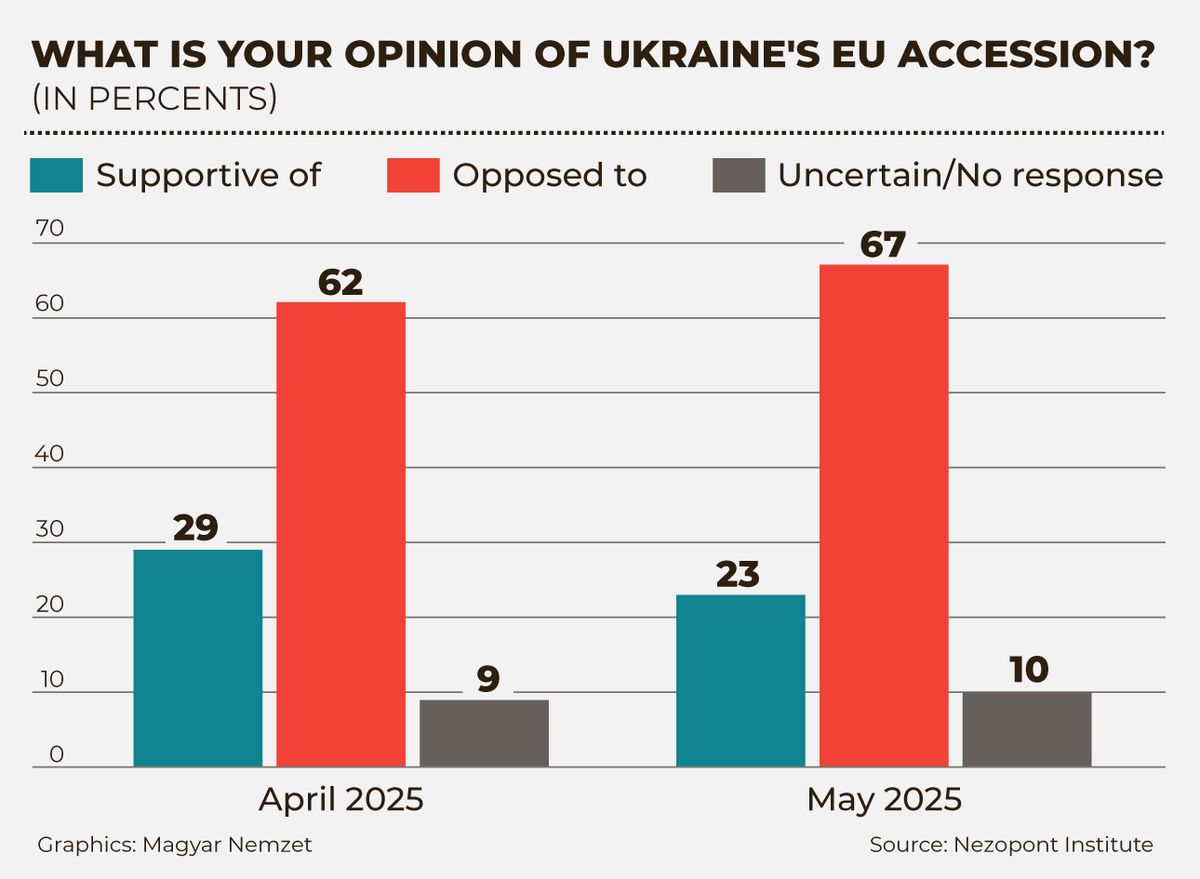
According to surveys conducted by the Nezopont Institute, Hungarians' opposition to Ukraine’s EU accession is growing.
While in mid-April, at the beginning of the government's national opinion vote, nearly one-third (29%) of eligible voters were somewhat supportive, by mid-May that number dropped to under a quarter (23%). In the same period,
the proportion of those holding a negative view of Ukraine’s accession rose above two-thirds—from 62% to 67%.
This means the camp rejecting Ukraine's accession has grown by over 300,000, now totaling approximately 5.2 million Hungarians opposed to admitting the eastern neighbor.
Methodology:
The Nezpont Institute conducted its surveys on April 14–15 and May 19–21, 2025, each time with 1,000 respondents via telephone. The sample is representative of the adult population aged 18 and over, controlled for gender, age, region, settlement type, and education level. With a sample size of 1,000 and a confidence level of 95%, the margin of error is ±3.16%.
In mid-March, the Nezopont Institute also polled support for Ukraine’s EU accession using a different question. Even the then, 27% support rate has since significantly declined.
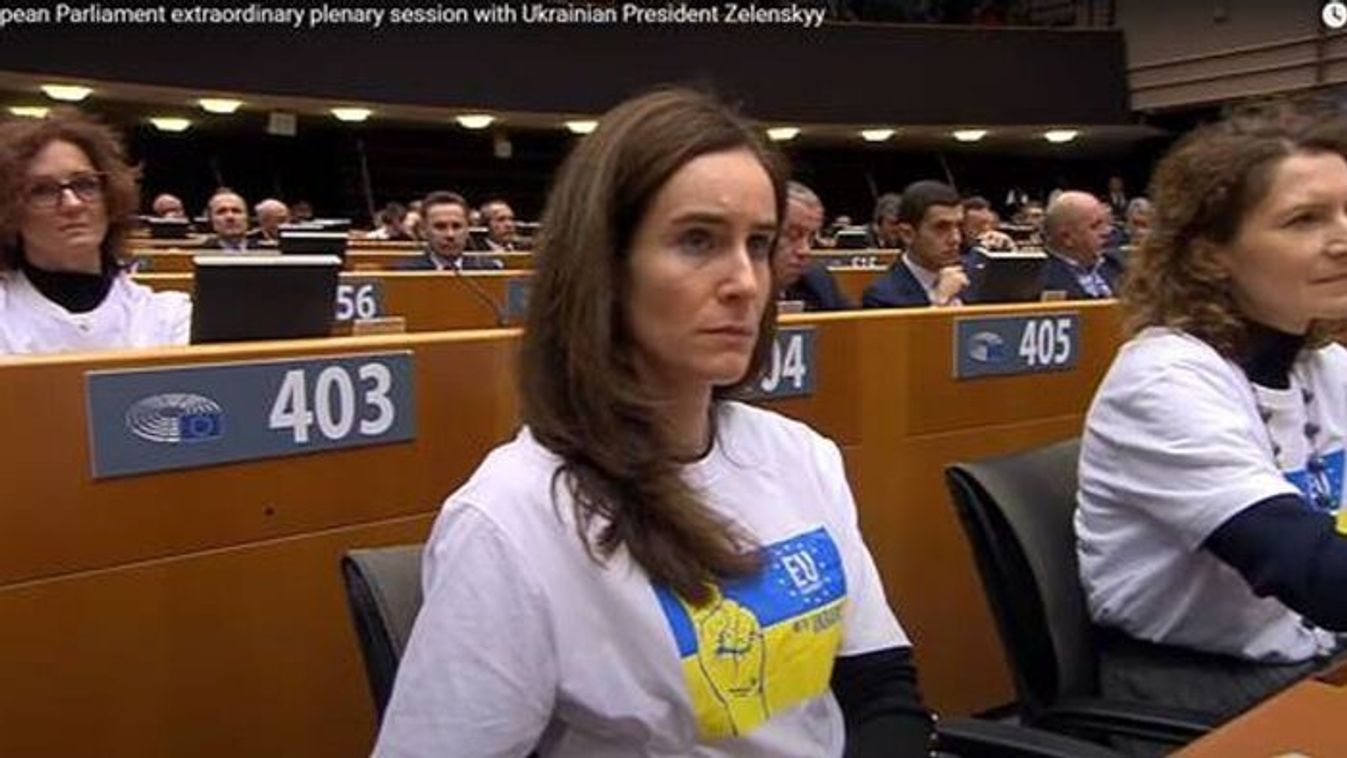

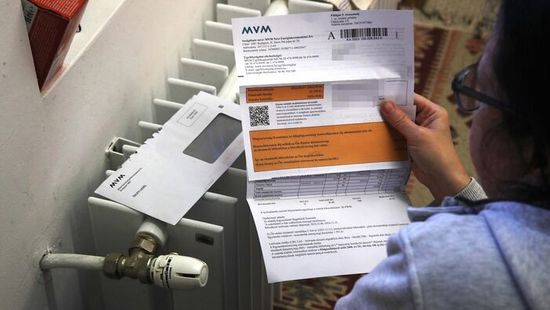
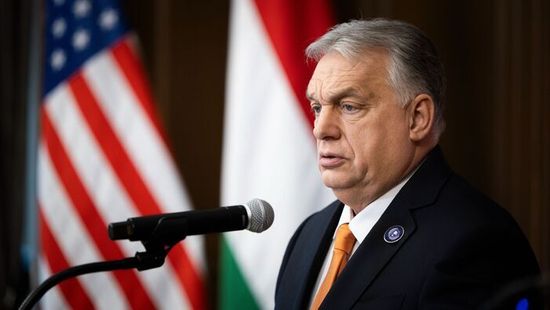
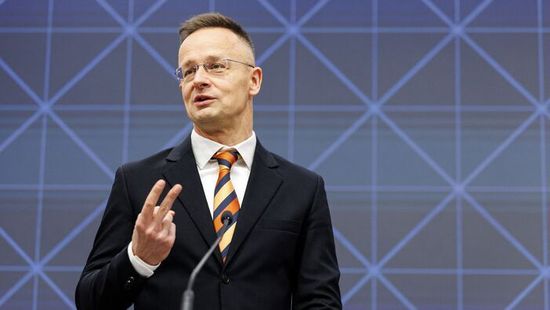

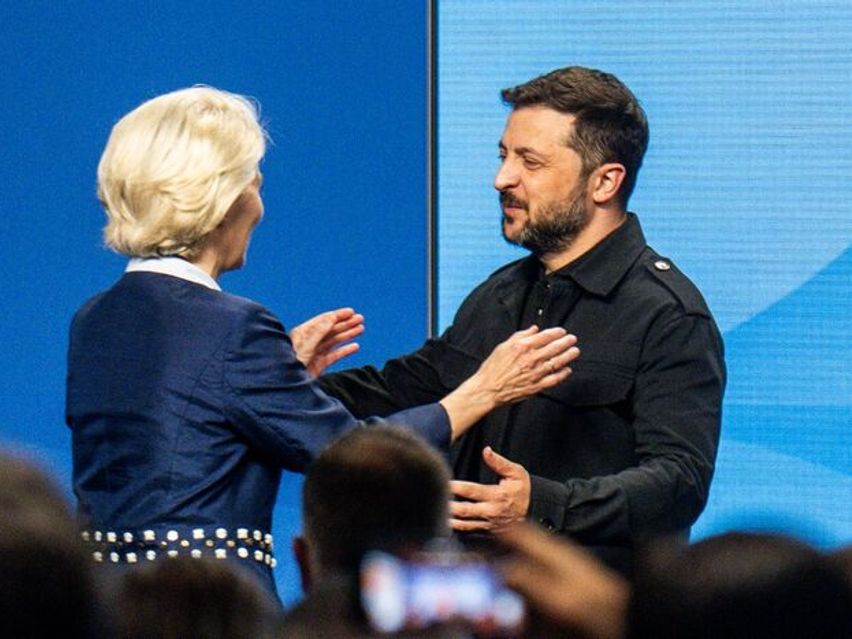

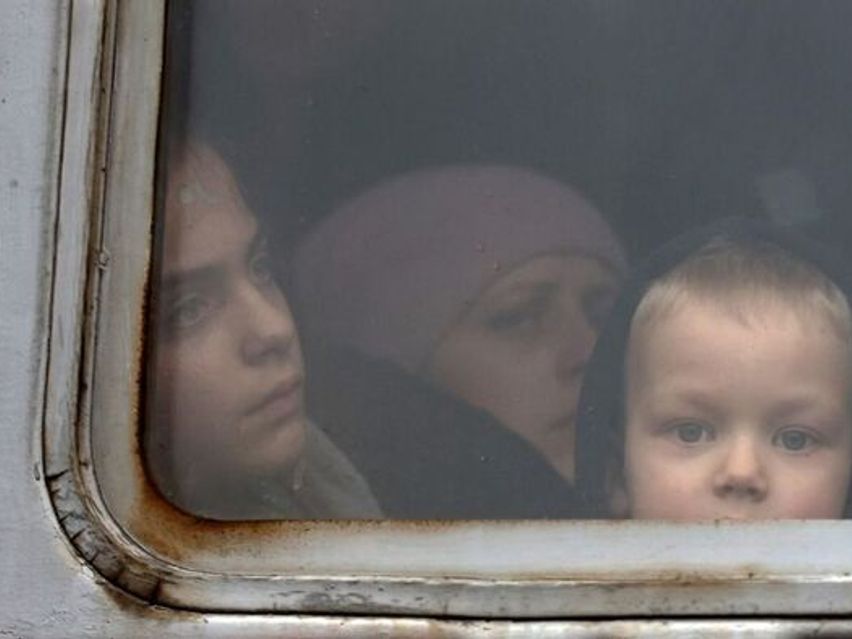
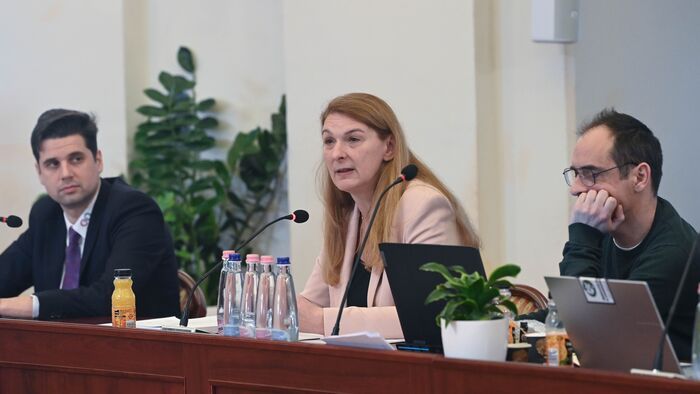

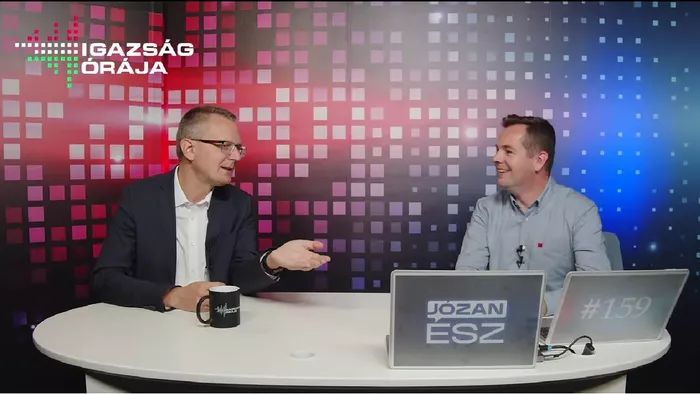

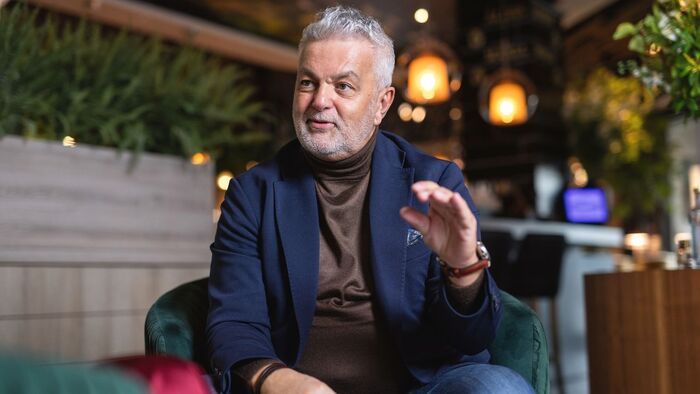
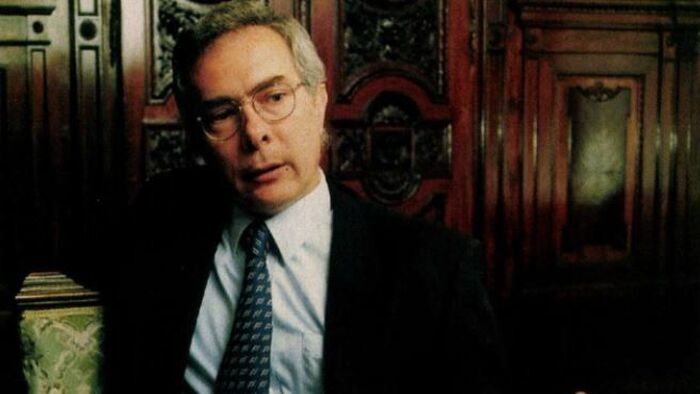

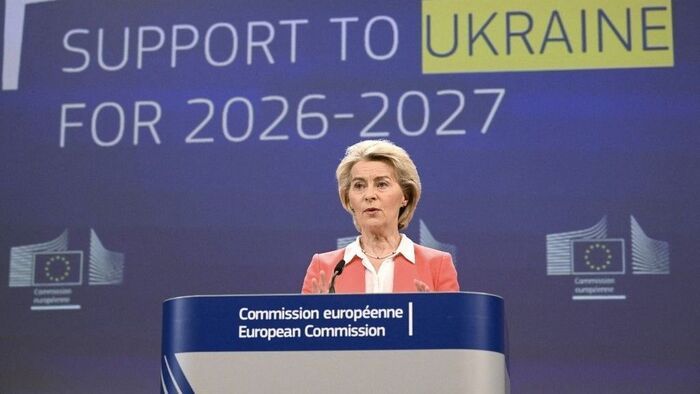


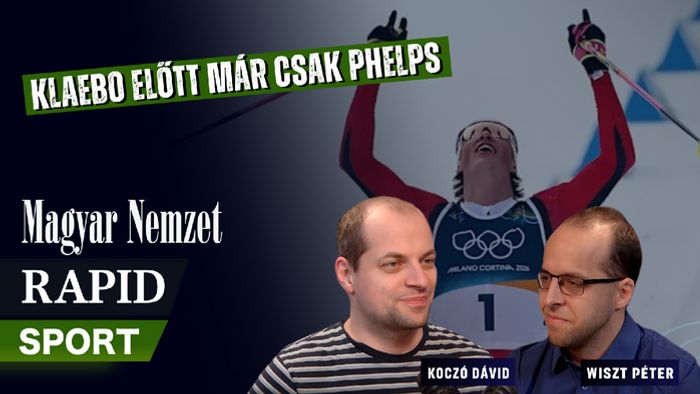
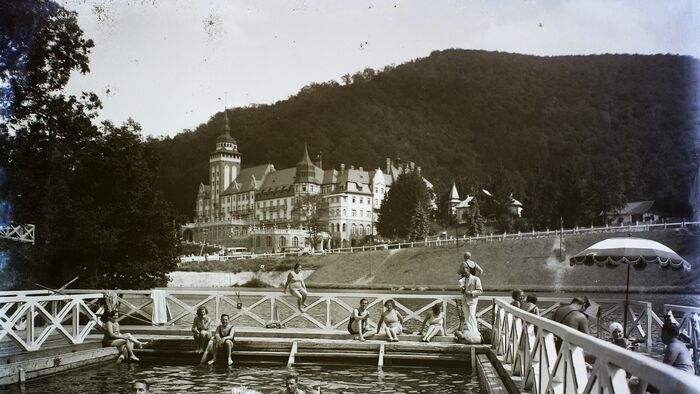
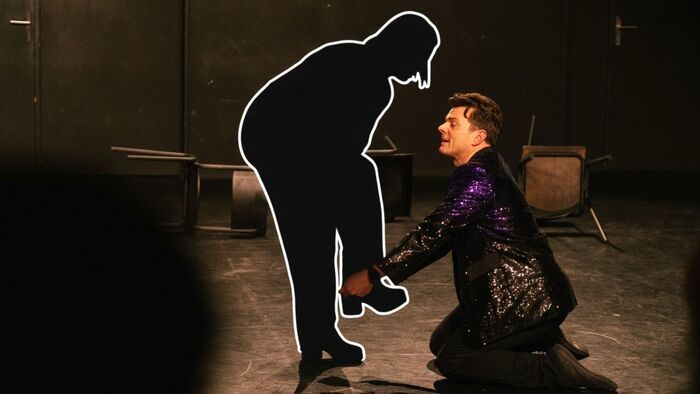

Szóljon hozzá!
Jelenleg csak a hozzászólások egy kis részét látja. Hozzászóláshoz és a további kommentek megtekintéséhez lépjen be, vagy regisztráljon!